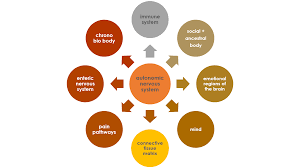Strategies for Dealing with Stress
Stress is a common part of life, but if left unchecked, it can have negative effects on our physical and mental well-being. Learning how to effectively manage stress is essential for maintaining a healthy lifestyle. Here are some strategies to help you deal with stress:
Identify the Source of Stress
The first step in managing stress is identifying the sources that are causing it. Is it work-related, personal relationships, financial issues, or health concerns? Understanding the root cause of your stress can help you address it more effectively.
Practice Relaxation Techniques
Engaging in relaxation techniques such as deep breathing, meditation, yoga, or progressive muscle relaxation can help calm your mind and body. These techniques can reduce stress hormones and promote a sense of relaxation and well-being.
Exercise Regularly
Physical activity is a great way to reduce stress levels. Exercise releases endorphins, which are natural mood lifters that can help combat stress and anxiety. Aim for at least 30 minutes of moderate exercise most days of the week.
Maintain a Healthy Lifestyle
Eating a balanced diet, getting enough sleep, and avoiding excessive alcohol and caffeine consumption can all contribute to better stress management. A healthy lifestyle supports your body’s ability to cope with stress more effectively.
Seek Support
Don’t be afraid to reach out for support from friends, family, or a professional counselor. Talking about your feelings and concerns with others can provide perspective and emotional relief. Support groups or therapy can also be beneficial in managing stress.
Practice Time Management
Prioritize tasks and set realistic goals to avoid feeling overwhelmed by responsibilities. Break tasks into smaller steps and tackle them one at a time. Effective time management can help reduce stress by promoting a sense of control over your workload.
Take Breaks and Relax
It’s important to take breaks throughout the day to relax and recharge. Whether it’s going for a walk, listening to music, or practicing mindfulness, taking time for yourself can help reduce stress levels and improve focus and productivity.
In Conclusion
Dealing with stress is an ongoing process that requires self-awareness and proactive strategies. By implementing these techniques into your daily routine, you can better manage stress and improve your overall well-being.
7 Effective Tips to Manage Stress and Enhance Well-Being
- Practice deep breathing exercises
- Engage in regular physical activity
- Maintain a healthy diet and stay hydrated
- Get enough quality sleep each night
- Take breaks and make time for relaxation
- Talk to someone you trust about your feelings
- Try mindfulness or meditation techniques
Practice deep breathing exercises
Practicing deep breathing exercises is a simple yet powerful technique for managing stress. By taking slow, deep breaths, you can activate the body’s relaxation response, which helps calm the mind and reduce feelings of anxiety. Deep breathing increases oxygen flow to the brain, promoting a sense of clarity and focus. Incorporating deep breathing exercises into your daily routine can help you navigate stressful situations with greater ease and maintain a sense of balance and well-being.
Engage in regular physical activity
Engaging in regular physical activity is a powerful way to combat stress and improve your overall well-being. Exercise not only helps release endorphins, the body’s natural mood boosters, but it also provides a healthy outlet for pent-up tension and anxiety. Whether it’s going for a brisk walk, practicing yoga, or hitting the gym, physical activity can help clear your mind, increase energy levels, and promote better sleep—all of which are essential for managing stress effectively. Making exercise a consistent part of your routine can have long-lasting benefits for both your physical and mental health.
Maintain a healthy diet and stay hydrated
Maintaining a healthy diet and staying hydrated are essential components of managing stress effectively. Eating a balanced diet rich in fruits, vegetables, whole grains, and lean proteins provides your body with the nutrients it needs to cope with stress. Hydrating adequately by drinking water throughout the day helps support your body’s functions and can improve your mood and energy levels. By prioritizing nutrition and hydration, you can enhance your resilience to stress and promote overall well-being.
Get enough quality sleep each night
Getting enough quality sleep each night is crucial for effectively managing stress. Sleep plays a vital role in our physical and mental well-being, allowing our bodies to rest and recharge. Quality sleep helps regulate stress hormones, improve mood, enhance cognitive function, and boost overall resilience to daily challenges. Prioritizing a consistent sleep schedule and creating a relaxing bedtime routine can significantly reduce stress levels and promote a sense of calmness and clarity throughout the day.
Take breaks and make time for relaxation
Taking breaks and making time for relaxation are essential strategies for managing stress effectively. In our fast-paced world, it’s easy to get caught up in the hustle and bustle of daily life without giving ourselves a chance to unwind. By intentionally scheduling breaks and incorporating relaxation activities into our routine, we give our minds and bodies the opportunity to recharge and rejuvenate. Whether it’s a short walk outside, a few minutes of deep breathing exercises, or enjoying a calming cup of tea, taking these moments for ourselves can help reduce stress levels, improve focus, and promote overall well-being. Prioritizing self-care through breaks and relaxation is crucial for maintaining balance and resilience in the face of life’s challenges.
Talk to someone you trust about your feelings
Talking to someone you trust about your feelings can be a powerful way to alleviate stress and gain perspective on challenging situations. Sharing your thoughts and emotions with a supportive individual can provide comfort, validation, and potentially helpful insights. Whether it’s a friend, family member, or therapist, opening up about your feelings can lighten the emotional burden you may be carrying and strengthen your social connections, ultimately contributing to improved mental well-being.
Try mindfulness or meditation techniques
Engaging in mindfulness or meditation techniques can be a powerful way to manage stress and promote mental well-being. By focusing on the present moment and cultivating a sense of awareness, mindfulness allows us to observe our thoughts and emotions without judgment. Similarly, meditation practices help calm the mind, reduce anxiety, and enhance overall clarity and concentration. Taking time each day to practice mindfulness or meditation can provide a valuable opportunity to center yourself, alleviate stress, and cultivate a greater sense of inner peace.


